Baseball History Comes Alive Now Ranked #2 by Feedspot Among All Internet Baseball History Websites and Blogs!
Guest Submissions from Our Readers Always Welcome!
Subscribe to Baseball History Comes Alive! for automatic updates (sign-up block found in right side-bar)
As a Free Bonus for subscribing, you’ll get instant access to my two Special Reports: Memorable World Series Moments and Gary’s Handy Dandy World Series Reference Guide!
“Vinegar Bend” Mizell and the 1960 World Series Photo Gallery
Click on any image below to see photos in full size and to start Photo Gallery:
Today we welcome back Bill Schaefer who shines our baseball stoplight on a pretty good ballplayer who also had one of the best baseball nicknames ever. Many of our “senior’ readers will recognize the name right away -GL
THE GREAT BASEBALL NAME GAME: “VINEGAR BEND” MIZELL
Part of the lore and lure of baseball are the wonderfully screwy names of baseball players. There was: Round Ron Northey, Erv “Four Sack” Dusak, Blue Moon Odom, Whitey Wietelmann, Monk Dubiel, Hooks Wiltse, The Hondo Hurricane, Three Finger Brown, Stubby Clap, Mysterious Walker, Boots Poffenberger, Orval Overall, Possum Whitted, The Splendid Splinter, Stan The Man, Wahoo Sam Crawford, Hugh High, Willie Puddin’ Head Jones…not to mention Pretzels Puzzullo, Peanuts Lowry and Cookie Lavagetto!
But let’s spotlight Wilmer David “Vinegar Bend” Mizell. He was born in Leaksville Mississippi, August 13, 1930. But the tiny unincorporated census-designated place in Washington County, Alabama, known as Vinegar Bend, was on the family’s residence mail route. Thus, Vinegar Bend was recorded as his birthplace and he was nicknamed for the community. The little “town” (under 200 people) got its name when a train passing through careened off the tracks and spilled its load of vinegar there.
THE EARLY YEARS
Walter Mizell died when Wilmer was only two-years-old. His mom became seriously ill soon thereafter, so he was raised by his grandmother and uncle. Young Wilmer took to throwing a baseball right away but had a crazy motion and was so wild his brother couldn’t play catch with him. He improved his control by throwing at a knothole in the side of the family’s smokehouse until he knocked the door down with his powerful arm.
Vinegar Bend started playing organized ball when he was 16 and pitched in Sunday leagues near his adopted home. A year later he attended a St. Louis Cardinals tryout camp in Biloxi, Mississippi. Buddy Lewis, a Cardinals scout, was impressed and came back the following spring on Mizell’s high-school graduation day to watch the big left-hander pitch again. Having just taken a dip in a nearby swimming hole, Mizell showed up barefoot and, sans any footwear whatever, proceeded to wow the scout with a fastball that jumped all over the place. Lewis offered to sign him after graduation for $500. In rapid-fire succession, Wilmer received his diploma, signed his contract, and left on a train for Georgia after the graduation- without even returning home from the ceremony!
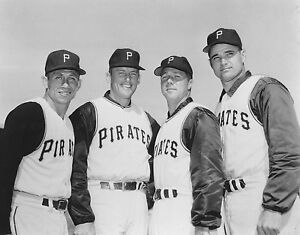
In 1949, Vinegar Bend was first assigned to Albany, Georgia, of the Class D Georgia-Florida League. On his very first pitch, he pulled a Ryne Duren, throwing the ball 20 feet over the backstop. But Mizell settled down, going 12-3 with a 1.98 ERA, striking out 175 batters in 141 innings as Albany went on to win the league pennant. A Westfield, NJ high school all-star pitcher faced Mizell in those early days and told me, “all you saw was Mizell’s big right leg go up in the air, the left hand comes out of his mitt…then you heard the ball smack into the catcher’s glove.” This jibes with teammate Ken Boyer’s comment, “the guy shows you his glove, his rear, and somebody tells you it’s a strike.”
It was on to Winston-Salem of the Class B Carolina League, in 1950, where Mizell dominated and pitched the team to a championship, striking out 227 in 207 innings. The next year and final stop before St. Louis, saw him join the Houston Buffaloes–where Vinegar Bend led the Texas League with 257 K’s and a sparkling 1.96 ERA.
ON TO THE MAJORS
Wilmer Mizell was primed and ready for the St. Louis Cardinals in 1952 and their new manager, Eddie Stanky. The Redbirds could hit, with Enos Slaughter and Stan Musial in the middle of the lineup but needed bolstering on the mound. Vinegar Bend was thought to be an exciting addition.
In ’52, major league attendance had plummeted for the second year in a row. Many thought television was the culprit. Boston would lose the Braves to Milwaukee in 1953. But New York still had three dominant baseball teams and fans in the tristate area were more than happy.
As Charles Dickens profoundly observed, “it was the best of times, it was the worst of times.” Gas was 25 cents a gallon, the airbag was invented, a charismatic five-star general won a landslide presidential victory, and Emmett Ashford became the first African-American umpire in organized baseball.
However, the Korean War was still raging and a stark fear of poliomyelitis gripped the nation, with no vaccine in sight.
During the Cardinals’ spring training in 1952, sportswriter Red Smith described Vinegar Bend Mizell as a “left-handed Dizzy Dean,” with “a fluid, easy motion and a singing fastball.” He led the league with 6.9 strikeouts per nine innings pitched, but allowed a league-leading 103 walks in 190 innings. With better command he would have improved on his 10-8 record and 3.65 ERA.
In 1953, he became a 13 game-winner against 11 losses with a tidy 3.49 ERA, but the 6-foot-3- in. Mizell walked a whopping 114 in 224 innings. He topped the league again with nearly seven strikeouts per nine innings. (Just to keep things in perspective, last year Gerrit Cole led the majors with 13.82 whiffs per nine innings. The average fastball when Mizell pitched was reported to be just a tad over 90 mph. Last year it was 93.4).
At the end of the season, after two deferments, the draft caught up with the big lefty and he spent the next two years in the army. Back on the mound for the Cards, in 1956, Vinegar Bend followed a familiar pattern of mediocrity sprinkled with brilliance, over the years to come.
But there were two distinct bright spots. In 1959 Mizell had a fine first half: 9-3, with a 3.05 ERA. This gave the jumbo southpaw a birth on the rosters of both National League All-Star squads, as two showcase games were played that year. And in 1960, Vinegar Bend was traded to the Pirates, in essence, for Julian Javier. Mizell was a key cog in the Pirates pennant run, going 13-5 with a nifty 3.12 ERA and a stretch of 30 consecutive scoreless innings. Javier became a mainstay at second base for St. Louis, for the next dozen years.
In his only start in the classic 1960 World Series, a “storybook” version might spin a tale he dominated the mighty Yankees, shutting them out with 13 strikeouts. But, alas, our boy lasted only a third of an inning and gave up four runs, on three hits and one walk. The Yankees won, 10-0.
Mizell endured his least effective full season in 1961, going 7-10 with a 5.04 ERA and was traded to the brand-new Mets the next year for first baseman Jim Marshall on May 7, 1962. Ironically, Vinegar Bend had defeated his new team before the trade, in his first start of the season, to post his 100th win and final major league victory. The Mets released him on August 4th and the books closed with Wilmer finishing his big league career with a record of 100-98, and a 3.85 ERA.
BEYOND THE WHITE LINES
After playing baseball, the affable Mizell took a crack at baseball broadcasting, became an executive for the Pepsi-Cola Company, and, in 1968, he was elected to the US House of representatives from North Carolina. A Republican, Vinegar Bend spent three terms in the House before being defeated in 1974, a victim of the Watergate scandal.
Mizell was ultra-conservative and scored a zero rating by the ADA (Americans for Democratic Action). That score indicated a total lack of support for any liberal legislation! He gently chided House Minority Leader Gerald Ford for being a dull speaker, with a flat monotone delivery. Ford did not take umbrage, it was impossible to get mad at the ex-pitcher who looked like Li’l Abner. In 1975, President Ford named Mizell the assistant Secretary of Commerce for economic development.
Vinegar Bend charmed everyone with his Southern drawl and country-boy wit, “The worst that happened to us back home in Vinegar Bend was the time we had the fire. It started in the bathroom. Fortunately, we were able to put it out before it reached the house.”
No drugs, no-nonsense, successful in marriage, adored by his two sons and grandchildren, Wilmer David Vinegar Bend Mizell passed away on February 21, 1999, at the age of 68. With a big smile and a perennial effervescence, he was certainly made to work well in the world.
Bill Schaefer
Sources: Vinegar Bend Mizell, Society for American Baseball Research Bioproject; Wilmer Mizell-Wikipedia page; NY Times Wilmer Mizell Obituary; Wilmer David Mizell: The Buff from Vinegar Bend!
Statistics from Baseball-Reference and Baseball Almanac
Photo Credits: All from Google search
We are a participant in the Amazon Services LLC Associates Program, an affiliate advertising program designed to provide a means for us to earn fees by linking to Amazon.com and affiliated sites. Click here to view Amazon’s privacy policy
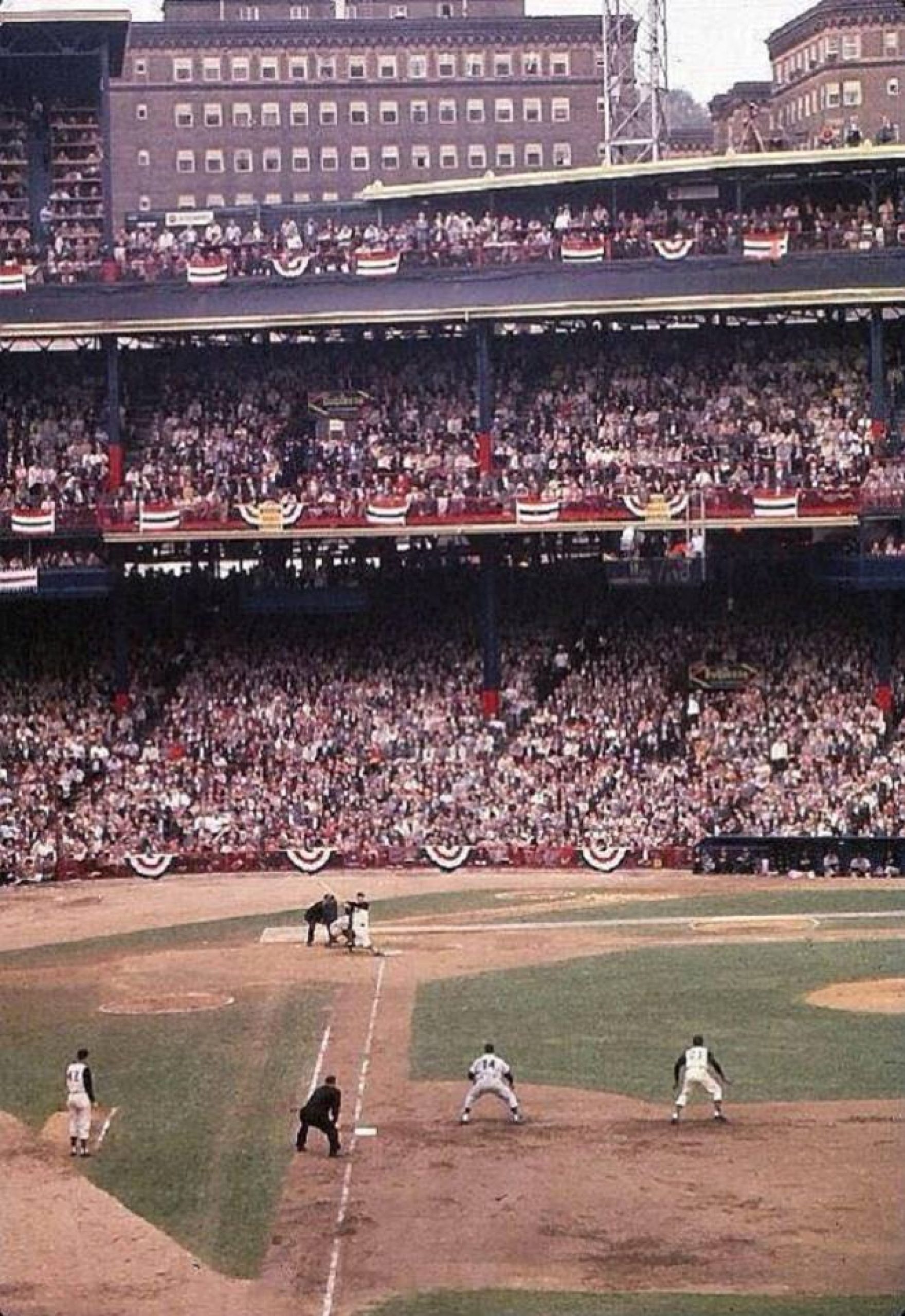
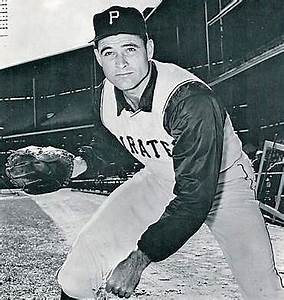
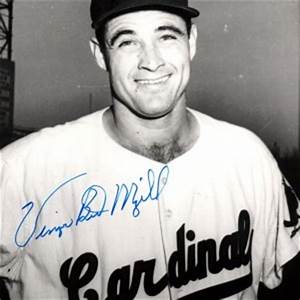
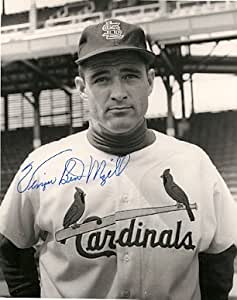
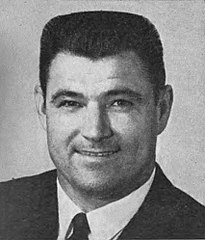
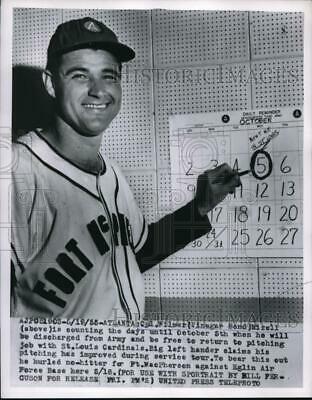
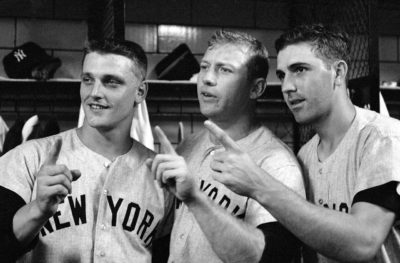
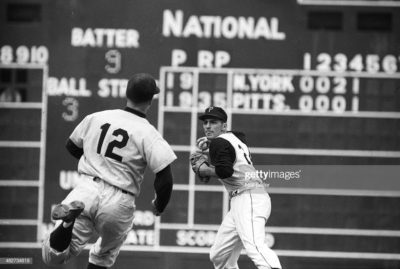
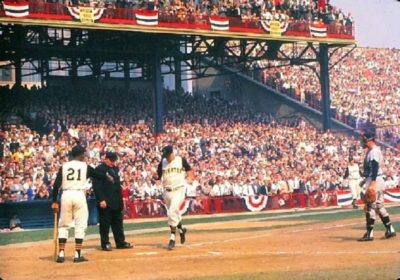
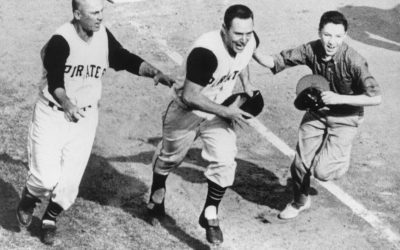
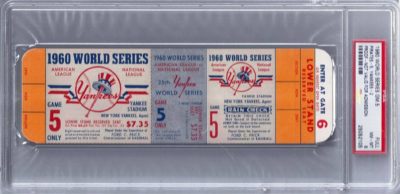
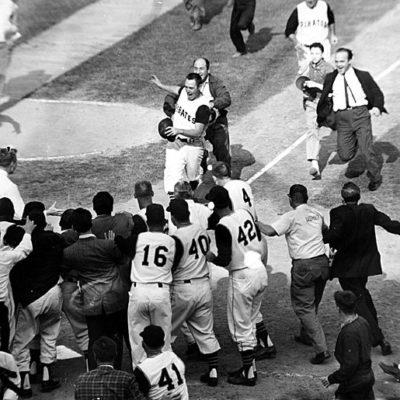
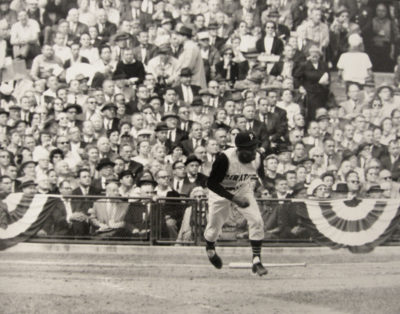
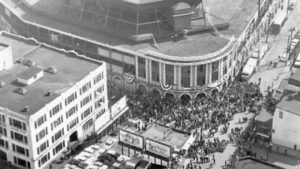
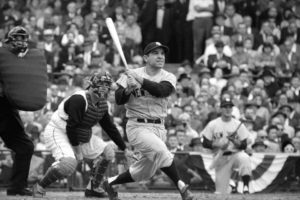
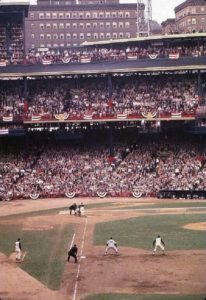

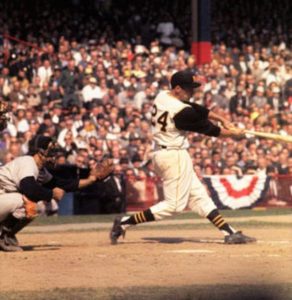
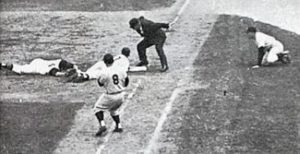
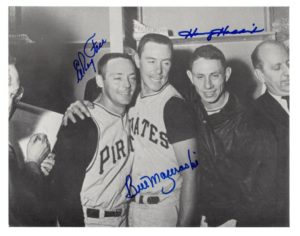
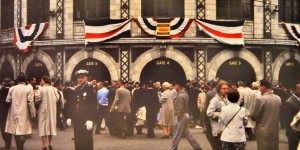
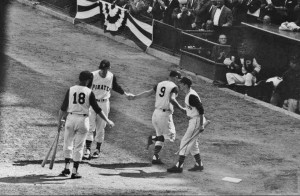
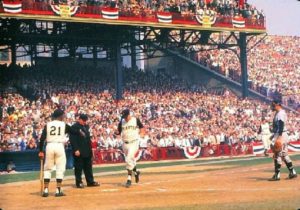

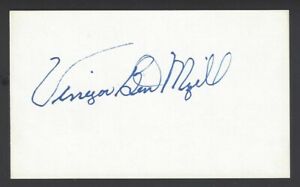
Great post Bill! But I don’t care what you say, he’ll always be Vinegar “BEN” to me. I’d swear that’s how I remember Jack Brickhouse saying his name. And check out the signatures in the photo gallery, too! Haha!
I add vinegar bend to all my salads. Delicious! 😁
Good story, Bill.
I still say that “No-Neck” Williams needs to be included on the all nickname list.
Sounds like a terrific salad topping, Paul!
And I’ll buy “No-Neck” Williams. I also like Ewell “The Whip” Blackwell and Jack “Lucky” Lohrke. Gary did a post on him two years ago, which is worth reading. Lohrke was no great shakes as a ball player but had numerous miraculous escapes from death while in the service. Thus, the nickname “Lucky.”
I remember him as a New York Giant third baseman in the late 40’s, with a rocket arm. The Jints tried to convert him to a pitcher but it didn’t work out. I remember Johnny Mize saying that when Jack threw the ball across the diamond to first base he would wince when the ball hit his glove. Lohrke threw a “heavy” ball that hit like a ton of bricks!